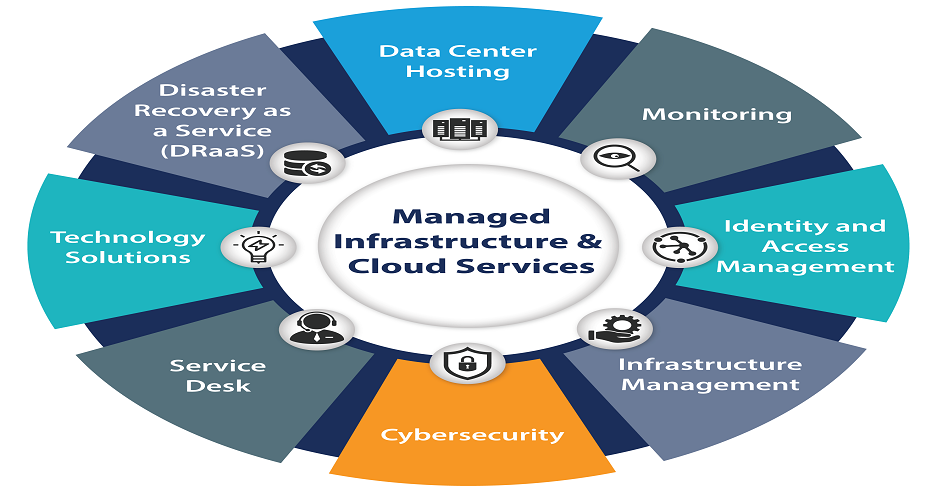


Hosting Infrastructure Management refers to the process of overseeing and maintaining the physical and virtual components of a hosting environment to ensure the smooth and reliable operation of websites, applications, or services hosted on servers. It involves various tasks, including hardware management, software configuration, security measures, performance optimization, and resource allocation.
Key Aspects of Hosting Infrastructure Management:
Server Provisioning: Setting up and configuring physical or virtual servers to host websites and applications. This includes installing the operating system, necessary software, and network configurations.
Resource Monitoring: Monitoring server resources such as CPU usage, memory, disk space, and network bandwidth to ensure optimal performance and detect any issues or bottlenecks.
Security Management: Implementing robust security measures to protect servers and hosted applications from cyber threats, such as firewalls, intrusion detection systems, and regular security updates.
Backup and Disaster Recovery: Establishing backup procedures and disaster recovery plans to ensure data integrity and business continuity in case of hardware failures or unexpected incidents.
Performance Optimization: Analyzing server performance and making necessary adjustments to optimize the speed and responsiveness of hosted applications.
Scaling and Load Balancing: Ensuring the hosting environment can handle increased traffic by scaling resources and implementing load balancing techniques to distribute traffic evenly across servers.
Software Updates and Patch Management: Regularly updating server software, applications, and security patches to address vulnerabilities and ensure a secure hosting environment.
Database Management: Managing and optimizing databases to ensure efficient data storage and retrieval for hosted applications.
Monitoring and Alerting: Implementing monitoring tools to track server health and performance, and setting up alerts to promptly address any issues or outages.
Compliance and Regulation: Ensuring that the hosting infrastructure complies with relevant industry standards and regulations, especially in sensitive sectors like healthcare or finance.
Technical Support: Providing technical support to clients or end-users to troubleshoot hosting-related issues and address inquiries.
Effective hosting infrastructure management is crucial for ensuring high availability, security, and performance of hosted services. It requires skilled IT professionals with expertise in server administration, networking, security, and cloud technologies. Outsourcing hosting infrastructure management to specialized service providers can be beneficial for businesses that want to focus on their core activities while leaving the technical aspects to experienced professionals.
© Copyright 2024 All Rights Reserved